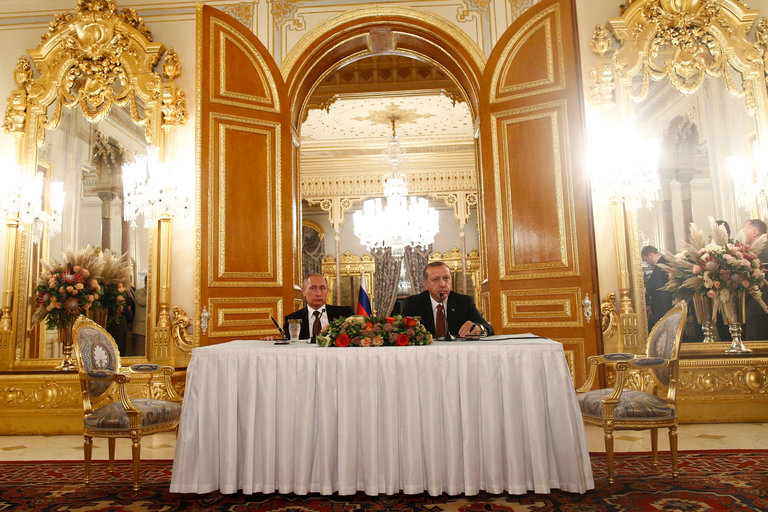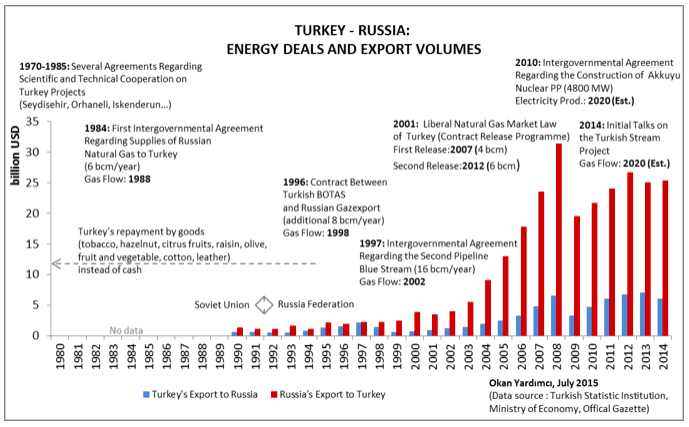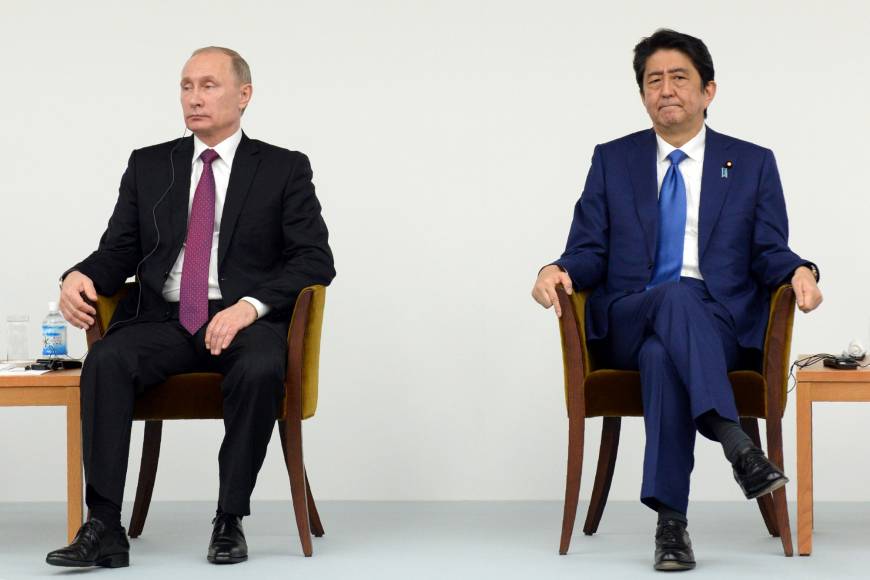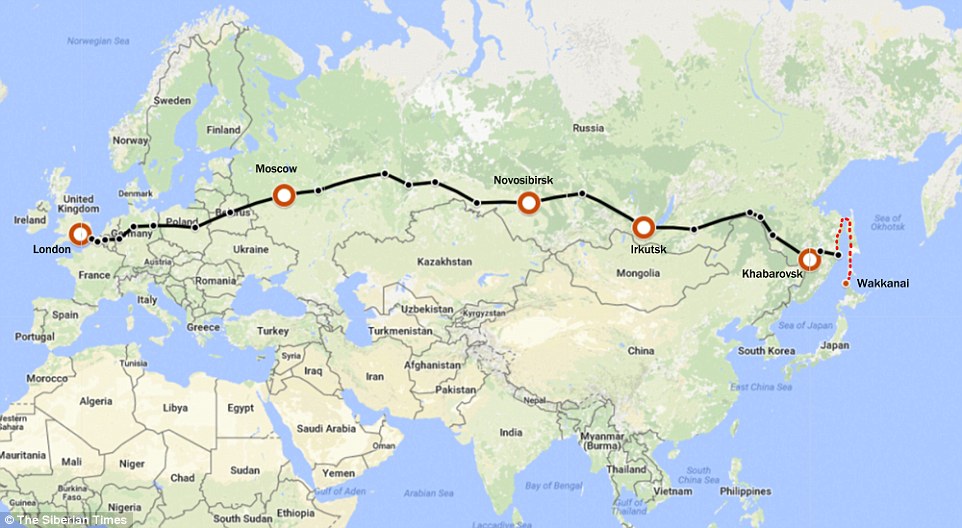
Both Mr. Putin and Mr. Erdogan have had recent troubles with Washington. Putin has been accused of war crimes in Syria for killing hundreds of civilians. Erdogan is killing Kurds and escalating the conflict, whereas the US is relying on Syrian Kurds to stem the Isis tide.
On December 19, 2016 the Russian Ambassador, Andrei Karlov, was shot and killed as he gave a speech at an embassy-sponsored exhibit in Ankara. Eye-witnesses were reported to have heard eight shots. The gunman shouted out: ‘‘Don’t forget Aleppo, don’t forget Syria!’’ referring to the Syrian city where Russian bombardments have helped drive rebels from areas they had occupied for years during the war. He also shouted ‘‘Allahu akbar,’’ the Arabic phrase for ‘‘God is great’’ and continued in Arabic: ‘‘We are the descendants of those who supported the Prophet Muhammad, for jihad.’’ The attacker also smashed several of the framed photos hung for the exhibition and an additional three people were injured during the attack.
‘We consider this to have been a terrorist attack,’’ Russian Foreign Ministry spokeswoman Maria Zakharova said. ‘‘Terrorism will not pass. We will fight it decisively.’’
The attack comes a day before a meeting of Russian, Turkish and Iranian foreign and defense ministers in Moscow to discuss Syria. Russia and Iran have backed Syrian President Bashar Assad throughout the nearly six-year conflict, while Turkey has supported Assad’s foes. The Kremlin suggested Turkey, Russia and Iran should come together for a solution, initially over Aleppo, but which could also be enlarged to include other parts of Syria, Reuters quoted a Turkish official as saying.
Melih Gokcek, the mayor for Ankara, told reporters outside the exhibition center that the ‘‘heinous’’ attack aimed to disrupt newly-re-established relations between Turkey and Russia.
Presidents Vladimir Putin and Recep Tayyip Erdogan have co-sponsored the evacuation of civilians and rebels from Aleppo and also discussed the prospect of organizing a new round of peace talks in Kazakhstan’s capital, Astana. Now this incident threatens to derail the evacuations of civilians from Aleppo.
The last time a diplomat was killed in Turkey was in an attack in 1971. Israel’s consul-general to Istanbul, Efraim Elrom. Until recently Turkey has been considered a relatively safe place for diplomats. This streak has been broken after the assassination of Ambassador Karlov, however, in view of the fact that the Erdogan administration is entirely dependent on Russian energy, relations will continue among the governments. Recent instability in Turkey and the fact that it is dangerous to be there has severely curtailed the tourist trade. Revenue from tourism fell by 32.7 percent to $8.28 billion in the third quarter of the year.
Despite the death of the Russian’ Diplomate we expect Putin to continue to guide Erdogan’s foreign policy.
Recep Tayyip Erdo?an has been characterized as increasingly undemocratic marked by attacks on freedom of expression. Despite outlawing competitive political parties, and a declining economy, he seems popular among the rural undereducated Turks. Turkey will stay in close collaboration with Russia for many years to come, despite their “hot-headed” relationship. Erdo?an is completely dependent on Russia for natural gas. Over the past 30 years the imports of natural gas from Russia into Turkey have nearly doubled. After Germany, Turkey is Russia’s second-largest natural gas client in Europe.

According to Natural Gas World: “After the European Union’s stance about competition on Russia and the conflict between Russia and Ukraine, Russia declared its intention to diversify its demand route by creating a new direct pipeline that runs through Turkish territory. The construction of the Turkish Stream pipeline was first discussed between Gazprom and BOTAS in December 2014. With an annual capacity of 63 billion m3, this pipeline will replace the South Stream, since the construction was suspended over the European Union’s stance about competition. According to initial plans, the Turkish Stream will extend from Russia, through Turkey and stop at the Greek border, giving Russia access to the southern European market. 14 billion m3 natural gas was planned to be consumed in Turkey.” (full article)

